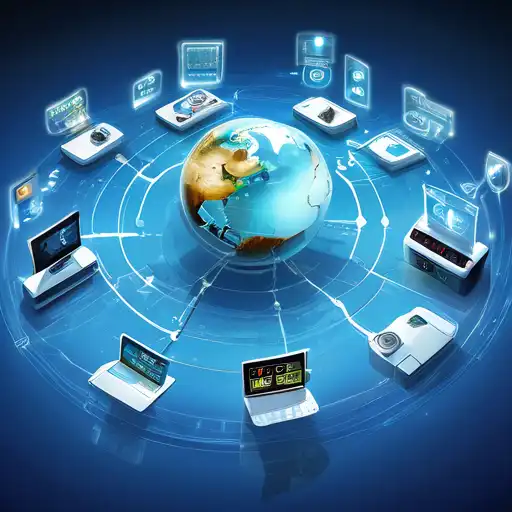The Smart Revolution: How the Internet of Things is Bridging Global Connections
The Internet of Things (IoT) represents a transformative phase in the digital era, where everyday objects are connected to the internet, allowing them to send and receive data. This innovation is not just about smart devices talking to each other; it's about creating a seamlessly connected world that enhances efficiency, safety, and convenience.
Understanding the Internet of Things
At its core, IoT is about connecting devices over the internet, enabling them to talk to us, to applications, and to each other. A simple example is a smart thermostat that learns your heating preferences and adjusts the temperature accordingly, saving energy and money.
The Impact of IoT on Daily Life
From smart homes that allow you to control lighting, heating, and security systems remotely, to wearable devices that monitor your health in real-time, IoT is making life more convenient and safer. The potential for IoT to improve quality of life is immense, with applications in healthcare, agriculture, and urban planning.
Challenges and Opportunities
Despite its benefits, IoT faces challenges such as security risks and privacy concerns. However, with advancements in technology and proper regulatory frameworks, these challenges can be overcome, unlocking the full potential of IoT.
Future Prospects of IoT
The future of IoT is boundless, with predictions of over 75 billion connected devices by 2025. This growth will drive innovation in various sectors, including smart cities, where IoT can help manage traffic, reduce pollution, and improve public services.
For more insights into how technology is shaping our future, explore our technology trends section.
Conclusion
The Internet of Things is more than just a technological trend; it's a revolution that's connecting the world smarter. By embracing IoT, we can look forward to a future where technology makes life more efficient, sustainable, and connected.
